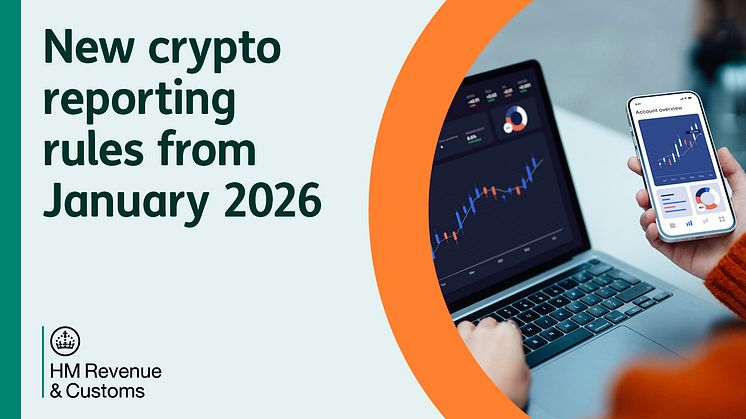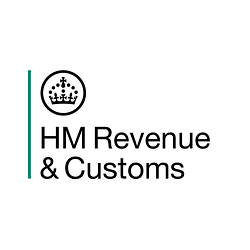
Press release -
Crypto bros being forced to pay fair share of tax
- New rules will help unmask anyone evading tax due on their crypto profits
- UK crypto holders must provide personal details to crypto service providers from January 2026 or face penalties of up to £300
- Aligns with government’s Plan for Change to ensure everyone pays their fair share of tax to fund vital public services
Public coffers are set for a boost as HM Revenue and Customs (HMRC) goes after crypto owners that aren’t paying their fair share of tax.
From January 2026, people who own crypto – like Bitcoin, Ethereum or Dogecoin – must give personal details to every crypto service provider they use to make sure they are paying the right tax.
Those who don’t comply risk a £300 fine from HMRC.
Once data is received from service providers, HMRC will be able to identify those who haven't been correctly paying tax on their crypto profits – bringing in money that will help pay for frontline nurses, police, and teachers.
This is estimated to raise up to £315 million by April 2030 in tax revenue – the same amount needed to fund more than 10,000 newly-qualified nurses for a year.
It’s part of a major drive by HMRC to tackle non-compliance including the small minority who are deliberately evading tax due on their profits from crypto.
Service providers will begin collecting data on users' activities from January 2026. Any service provider that fails to report this information, or submits inaccurate or incomplete reports, could also be charged a penalty of up to £300 per user by HMRC.
The new rules mean crypto service providers must collect and report:
- Your name, address, and date of birth
- Your tax residence
- Your National Insurance number or tax reference
- A summary of your crypto transactions
James Murray MP, Exchequer Secretary to the Treasury, said:
"We're going further and faster to crack down on tax dodgers as we close the tax gap and deliver on our Plan for Change.
“By ensuring everyone pays their fair share, the new crypto reporting rules will make sure tax dodgers have nowhere to hide, helping raise the revenue needed to fund our nurses, police and other vital public services."
Jonathan Athow, HMRC’s Director General for Customer Strategy and Tax Design, said:
"Importantly, this isn't a new tax – if you make a profit when you sell, swap or transfer your crypto, tax may already be due.
"These new reporting requirements will give us the information to help people get their tax affairs right.
"I urge all cryptoasset users to check the details you will need to give your provider. Taking action now and having this information to hand will help you avoid penalties in the future.”
The new rules – known as the Cryptoasset Reporting Framework – will help HMRC identify those who need to pay tax on their crypto transactions. They will also bring the UK into line with the international standard developed by the Organisation for Economic Co-operation and Development (OECD), enabling tax authorities to share information across participating countries.
Crypto users should already include any crypto gains or income in their Self Assessment tax returns. HMRC has introduced new dedicated sections to the capital gain pages to be completed from the 2024 to 2025 tax year.
Capital Gains Tax may be due when selling or exchanging crypto, while Income Tax and National Insurance could apply to crypto received from employment, mining, staking or lending activities.
Anyone unsure about their tax obligations can check if they need to pay tax when they receive or sell crypto on gov.uk. They can also tell HMRC about unpaid tax on crypto using the cryptoasset disclosure service.
Notes to Editors:
- More information for crypto users is on GOV.UK.
- More information for crypto service providers is on GOV.UK.
- Follow HMRC's Press Office on X @HMRCpressoffice
Related links
Topics
Categories
Issued by HM Revenue & Customs Press Office
HM Revenue & Customs (HMRC) is the UK’s tax authority.
HMRC is responsible for making sure that the money is available to fund the UK’s public services and for helping families and individuals with targeted financial support.

